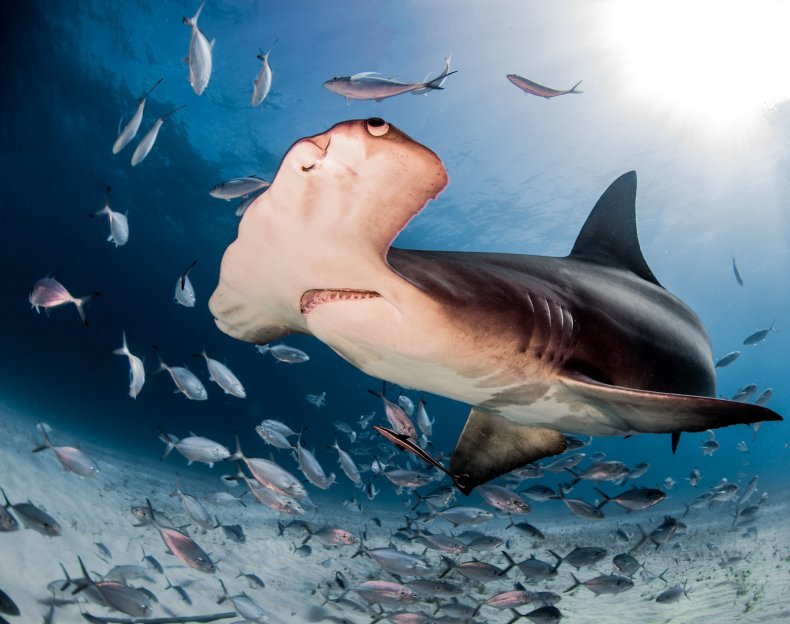Mystery Solved After Hammerhead Shark and 40 Pups Found Dead
Scientists have solved the mystery of a giant hammerhead shark that washed ashore dead in Alabama, pregnant with 40 pups.
The 14-foot shark was pulled ashore in Orange Beach on April 20. Staff from the City of Orange Beach Coastal Resources arrived at the scene and removed it from the beach. Scientists from the Mississippi State University Marine Fisheries Ecology took it in to perform a necropsy.
Upon first look, the Hammerhead was seemingly in perfect condition. That is also when scientists discovered the female shark was pregnant with 40 pups.
Usually when marine wildlife strands, there is an injury or illness responsible, but that did not seem to be the case here.
After evaluating the shark's organs, they found no signs of trauma. However, hammerheads are prone to suffering physical effects from stress, Mississippi State University Marine Fisheries Ecology said in a Facebook post. Pregnancy can exacerbate the stress.
"We know that great hammerheads are especially prone to the physiological effects of capture stress, more so than most other shark species. Pregnancy compounds this physiological stress," the Facebook post said. "Consequently, we suspect death was the result of fishing mortality."
Great hammerhead sharks are an endangered species. They are often snagged as bycatch by commercial fisheries but can sometimes be targeted for the shark fin trade. It can be easy for the sharks to become trapped in fishing nets due to the shape of their heads.
Species are sometimes able to escape the nets, but they often become injured or stressed as a result.
Although scientists suspect this was the cause of death, they said on Facebook that it "is impossible to determine [...] with absolute certainty."

Hammerheads give birth to live young and can carry between six and 42 pups at one time. The 40 pups were removed during the necropsy, but none of them survived. They were dead when the shark was found on the beach, the university said.
The university said they were "saddened by the loss of these individuals," but the specimens will be useful to scientists who will now study them in order to learn more about the species.
There may be as few as 200 giant Hammerheads remaining in the ocean. For this reason, they are rarely spotted in the wild.
It is not uncommon for marine life to strand on beaches, but it mostly occurs in cetaceans rather than sharks, making this incident rare.
Do you have an animal or nature story to share with Newsweek? Do you have a question about sharks? Let us know via nature@newsweek.com.








